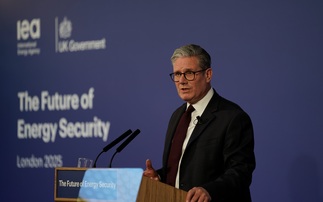Jane Burston sees the UK scoop an unwanted gong for its support of Canadian oil sands
Celebrating the 'dinosaurs' of the climate talks, the ‘Fossil of the Day' awards recognises the worst performing countries in the negotiations. It's organised by the Climate Action Network (CAN), a...
To continue reading this article...
Join BusinessGreen
In just a few clicks you can start your free BusinessGreen Lite membership for 12 months, providing you access to:
- Three complimentary articles per month covering the latest real-time news, analysis, and opinion from Europe’s leading source of information on the Green economy and business
- Receive important and breaking news stories via our daily news alert
- Our weekly newsletter with the best of the week’s green business news and analysis







